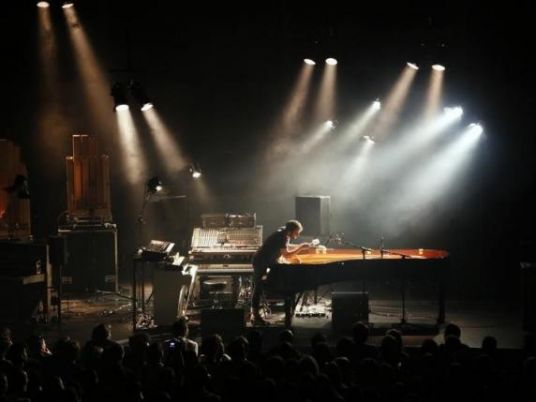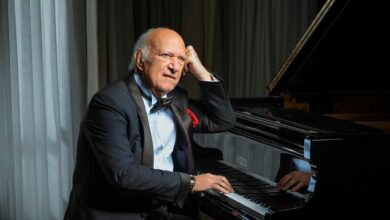
Three pianos, a wood pipe organ, a synthesizer and toilet brushes are the standard setup for a show by German experimental composer Nils Frahm.
He navigated masterfully between the instruments this week during his second sold-out show at London’s Roundhouse venue, playing lush compositions drawing on the electronica of Aphex Twin and the melodious patterns of Chopin.
The organ of wood and vacuum cleaner tubes and the piano muffled with strips of felt were custom made, highlighting Frahm's unconventional approach to classical music.
"Sometimes it is easier to create your own instrument and probably cheaper and it is also fun," he explained. "It is great to use something which isn't out there."
Toilet brushes are Frahm's rhythm instrument.
"It looks ridiculous but sounds so cool," he said.
Berlin-based Frahm, 32, will play big festivals around Europe this summer, including the BBC Proms 120th anniversary show at The Royal Albert Hall on August 5.
He has been playing the piano since childhood and was trained by Nahum Brodski, a student of Tchaikovsky's last protégé. Frahm gained international recognition after releasing his album "Felt" in 2011, whose distinctive deep piano sound creates a feeling of being inside the instrument.
"I tried to record it in a conventional way and it sounded very conventional, it sounded like an average piano," Frahm said. So he dampened the piano sound with a layer of felt and placed microphones close to the strings.
"It was so quiet, you could barely hear anything. You would hear a mouse walking by louder than the keys. Then the noise appeared and I started shaping it too. All these things started to become an instrument as well. And I realized I had a whole band with this piano," he said.
"This particular piano sound, it started to become my voice, my tone," Frahm said. "Now people, even if the song is unfamiliar to them, they can guess it is me because of the depth of the sound."
Often compared with French avant-garde pianist Erik Satie for his minimalist approach, Frahm describes his music as a "dynamic journey" and says he wants to show how simple compositions can be breathtaking.
"There are a thousand million piano players out there but if somebody says, 'Oh, this must be Nils', then I achieved my goal," he said.




